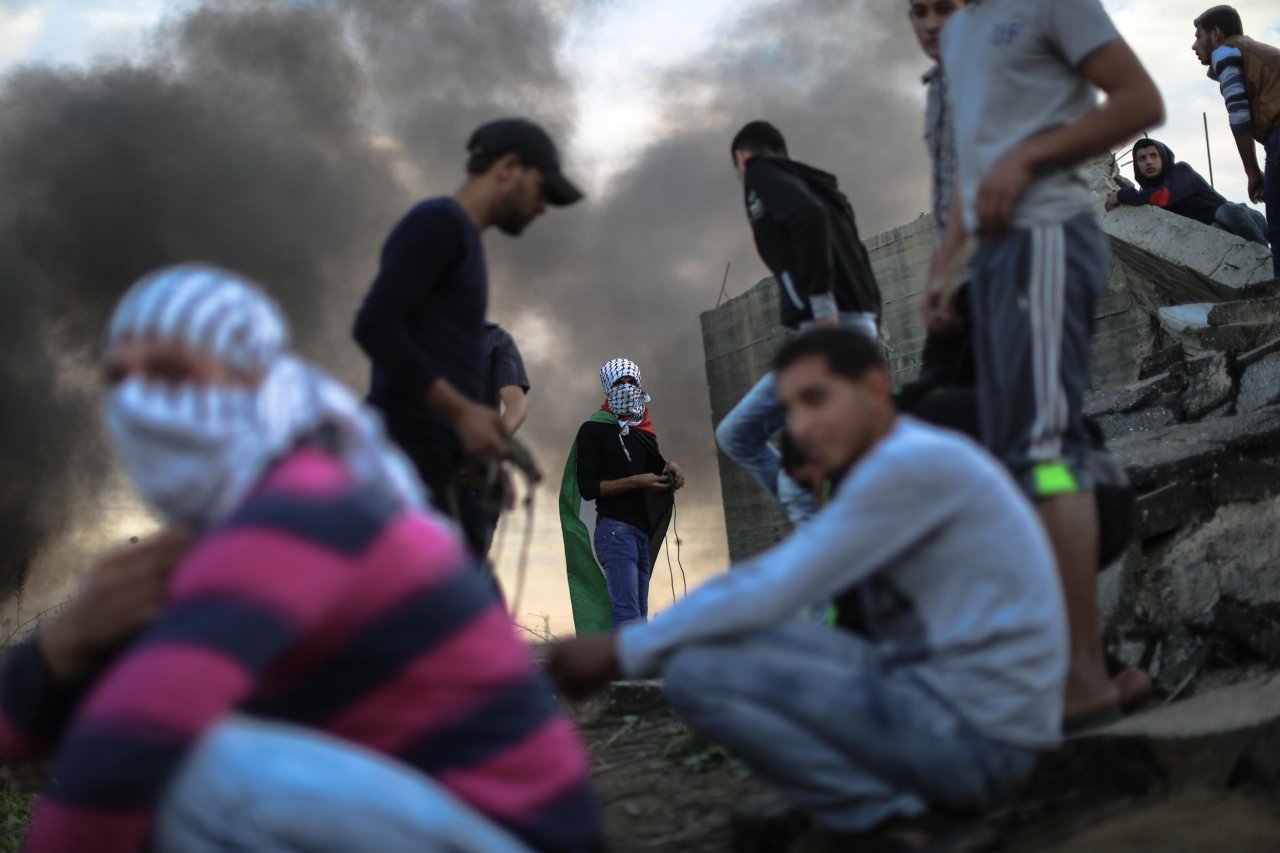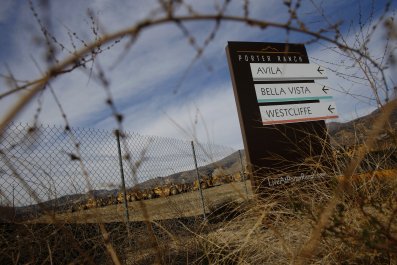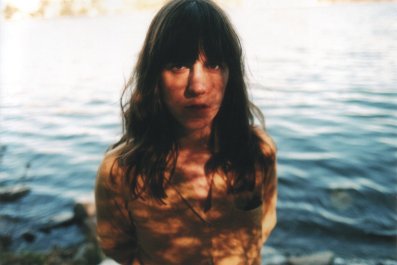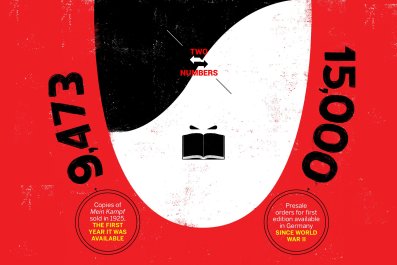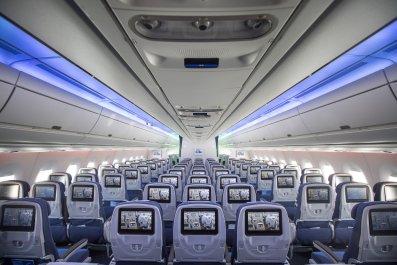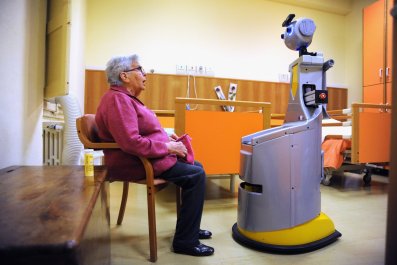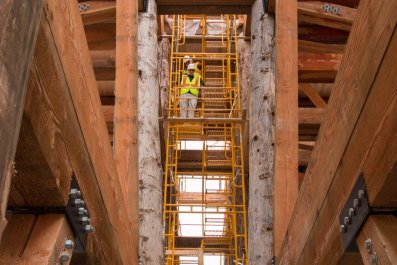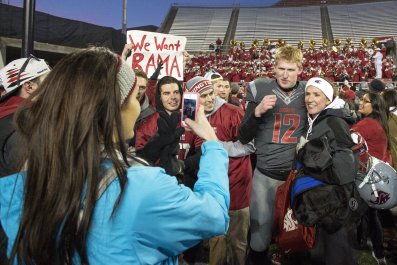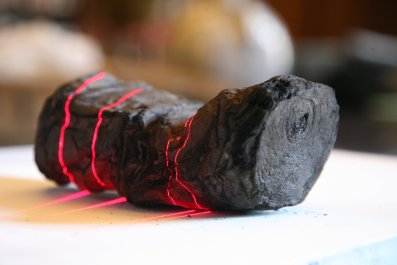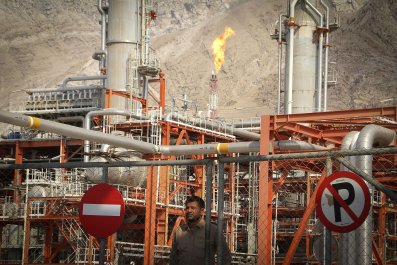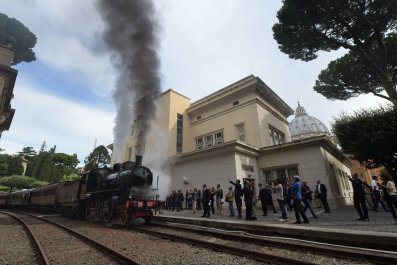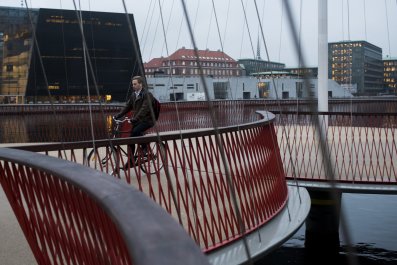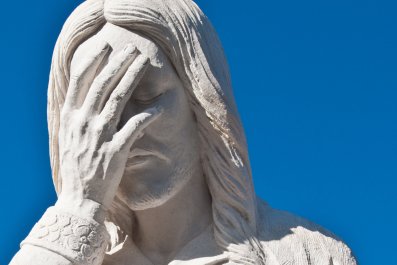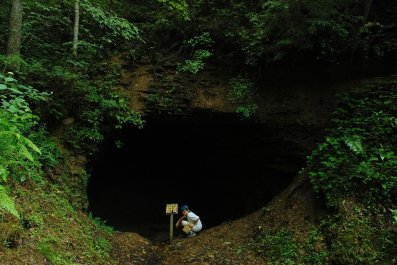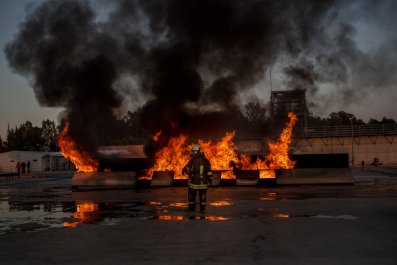At the Palestinian refugee camp Qalandiya, just north of Jerusalem, residents have turned the community center into a mourning area for the nine young men from the camp who have died in attacks on Israelis or clashes with Israeli forces since October. On a recent afternoon, men sat on plastic chairs in the center, sipping black coffee and talking about the year ahead. Hope was in short supply. "If there is no political solution, this haba [rising] will continue and escalate," says Jamal Lafi, head of a local residents committee.
The latest wave of violence erupted last fall, after Israeli police clashed with Palestinian demonstrators at Jerusalem's most hotly contested religious site, known to Jews as the Temple Mount and to Muslims as the Noble Sanctuary. Since early October, Palestinian attacks, mostly stabbings and car rammings, have left 24 Israelis dead. Over the same period, according to Reuters, Israeli forces or armed civilians have killed at least 144 Palestinians—92 of whom Israeli officials described as assailants. The attacks have seemed almost spontaneous and are often celebrated on social media.
But for all of Lafi's fears, there are significant factors that may prevent the violence from reaching the levels of a full-scale uprising. This haba has so far been limited to "lone wolf" attacks. There have been no suicide bombings, which were common in the Second Intifada. More than 1,000 Israelis and more than 5,000 Palestinians died during that conflict, which began in 2000 and ended in 2005.
Although Palestinians in the West Bank tend to sympathize with the new uprising, most have avoided participating in it. This may be in part because the death toll in the Second Intifada was so high and the violence did little to resolve the conflict. This time around, the Israeli military has generally refrained from steps that would encourage mass participation in the violence, such as closing the gates on the Palestinians who work in Israel or on Jewish settlements.
But another crucial reason why the unrest has not morphed into an all-out uprising is that Palestinian President Mahmoud Abbas has taken an increasingly tough stance against this happening. Although Israeli Prime Minister Benjamin Netanyahu has publicly charged Abbas with inciting the violence, Israeli security experts have said they believe Abbas and the Palestinian Authority (PA) are working to discourage attacks and prevent another intifada. Since the end of the Second Intifada, Abbas, 80, has called upon the Palestinians to reject armed struggle and mount a campaign of nonviolent resistance to Israel's occupation of the West Bank, a message many Palestinians seem to reject.
A December poll from the Palestinian Center for Policy and Survey Research (PCPSR) showed that 67 percent of the Palestinian public supports knife attacks. In addition, 66 percent of those polled believe that if the unrest develops into an "armed intifada, " the violence would serve Palestinian national interests in a way that negotiations have not. That leaves the Palestinian president increasingly at odds with the people he leads.
At Qalandiya, residents speak with pride of family members they have lost in the fighting. Nasser Abu Ghuweileh, whose son Wisam died while carrying out a car-ramming attack at the Israeli settlement of Adam in the West Bank, refuses to accept the traditional words of condolence, Tislam rasak (May your head be safe). Instead, he replies with a pained smile, "You should congratulate me on his martyrdom."
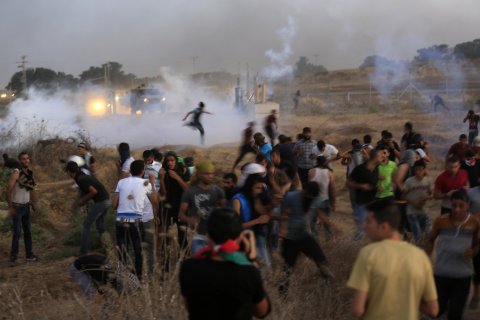
Young people in the camp echo Abu Ghuweileh's defiance, saying they want their camp to become a symbol of what they hope will become the Third Intifada. "We can't stop now. We will continue, and if we die, others will follow our path," says Hussein Shehadeh, a 21-year-old electrician.
Abbas doesn't share that vision, and he has deployed Palestinian security forces to prevent young Palestinians like Shehadeh from coming into face-to-face contact with Israelis. On December 25, for example, PA security forces blocked a protest of several hundred activists hoping to reach the Israeli army position at the Beit El settlement near the West Bank city of Ramallah, according to participants. Members of Abbas's presidential guard stopped the marchers, some of whom had been wounded in earlier clashes with the Israeli army, and PA plainclothes officers clubbed them with truncheons, according to Khaled Zawahreh, a participant.
Zawahreh says the protesters will try again. A building contractor and activist for the left-leaning Democratic Front for the Liberation of Palestine (a faction of the Palestine Liberation Organization), Zawahreh describes Abbas as "the enemy of the intifada." On December 30, hundreds of activists from another PLO faction tried to reach Beit El, according to one of the organizers of the protest. This time it was supporters of Abbas's own Fatah movement who were turned back by PA security, albeit without violence.
Such interventions, if they continue, are likely to hasten a further decline in Abbas's popularity. His ratings slumped to 38 percent in December, down from 44 percent three months earlier. The December PCSPR survey showed that two-thirds of Palestinians want Abbas to resign. The president also faces questions over his legitimacy on the ground: He was elected more than a decade ago, and his term expired in 2009. Because of the ongoing split between the Fatah-controlled West Bank and the Hamas-ruled Gaza Strip, no new elections are in sight.
Compared with his predecessor, the battle-hardened and often bellicose Yasser Arafat, Abbas comes across as somewhat academic and unemotional. The president has made only brief public references to the unrest. Hani Masri, director of the Ramallah-based think tank Masarat, says Abbas often sounds more like a political commentator than a president leading his people.
Netanyahu has accused Abbas of encouraging the attacks, but Nimr Hamad, a political adviser to Abbas, tells Newsweek that the president is not in favor of a new uprising. "An intifada will not serve the interest of the Palestinians, nor will it lead to any reconciliation," he says. "We are in favor of solving this conflict through negotiations."
Abbas has also come under pressure recently from within Fatah to be more confrontational toward Israel. Naim Murar, a Fatah official in Ramallah who helped organize the December 30 march that was blocked, says he wants to see Abbas follow up on a 2015 PLO vote to suspend security cooperation with Israeli forces. According to Murar, the president should also endorse a boycott of all Israeli goods, not just products made or grown in Israeli settlements in the West Bank, and he should aggressively push for the prosecutions of Israeli leaders at the International Criminal Court on war crimes charges. "We need the political positions to be in line with the haba," says Murar.
"[Abbas] doesn't speak, act or lead. He is busy with side issues," says Masri. "The leadership is in a maze. They don't know what to do. They are not providing people with an effective plan that they can follow. People are acting on their own."
Hamad disputes this, saying Abbas's strategy is to persuade key international bodies and powers—specifically the U.N., the U.S., the EU and Russia—to pressure Israel to stop building new settlements in the West Bank and to halt construction in the existing Jewish communities there. "If the Israelis continue to refuse to freeze settlements and to respect the implementation of the agreements signed with them, [we will see] the internationalization of this conflict," he says.
A senior PA security official, speaking to Newsweek on condition of anonymity because he is not authorized to discuss political matters, says Abbas "is the best choice for rational Palestinian thinking people. He knows he doesn't have a 100 percent popularity, but the role of responsible leadership is to take people from point A to point B, even if they can't see that point B is better than point A."
Khalil Shikaki, director of the PCPSR, believes the coming months will likely see an uptick in violence. He says 2016 "will probably be worse than 2015." How much of an escalation there is could depend as much on the internal struggle among Palestinians as on their conflict with Israel.



